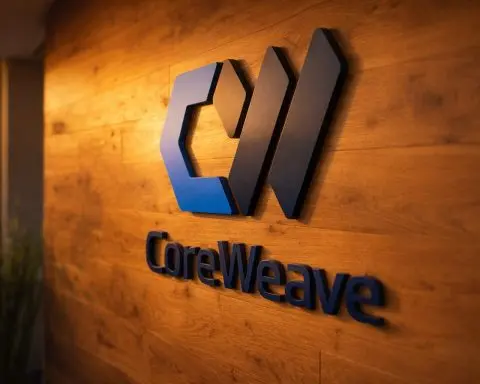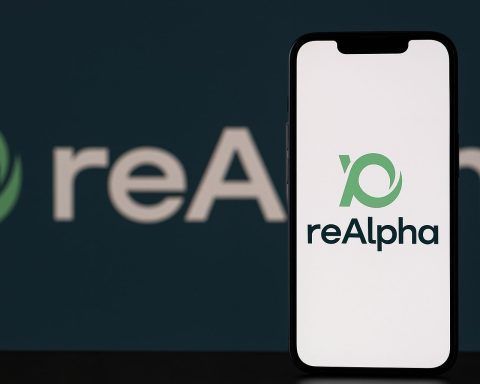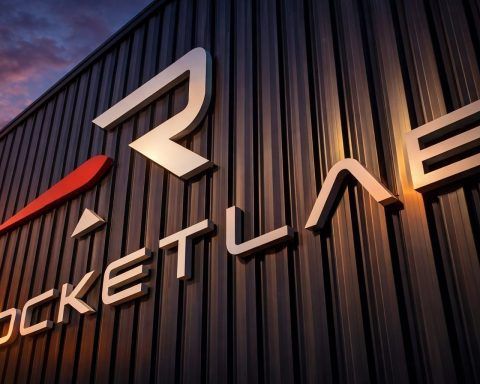- Daniel Lubetzky, founder of KIND Snacks, sold the company to Mars Incorporated in 2020 for about $5 billion.
- Lubetzky is a guest investor on ABC’s Shark Tank and is known for promoting purpose-driven business.
- He argues that a four-year college degree is not mandatory and claims universities have failed to teach critical thinking and a builder’s mindset.
- He advocates vocational training and hands-on trades, saying carpentry or mechanics jobs are AI-proof and pay very well.
- As of May 2025, about 245,000 construction jobs and 414,000 manufacturing jobs were open in the United States.
- He criticizes Gen Z for a tech-dream mindset and a ‘sheep-herd’ mentality chasing apps, noting AI threatens entry-level white-collar roles.
- He suggests reading Plato, Socrates, and Aristotle to strengthen critical thinking and curiosity.
- Lubetzky emphasizes a blend of education and practical know-how, arguing trades offer stability, good pay, and potential entrepreneurship.
- Survey data cited in the piece indicate about 44% of Gen Z feel their college degree did not prepare them for the workforce.
- Nearly 50% of employers have removed or are considering removing college degree requirements for certain roles, focusing instead on skills and certifications.
In an era where artificial intelligence (AI) threatens to upend traditional career paths, one self-made billionaire has a provocative message for today’s youth. Daniel Lubetzky – the founder of KIND Snacks and a guest investor on Shark Tank – is urging Generation Z to rethink the value of a college degree and develop practical “hard” skills that robots can’t easily replace. Lubetzky warns that too many young people are doomscrolling on TikTok and dreaming of tech startup glory while neglecting real-world abilities. His advice? Put down the phone, pick up a trade, and even crack open some classic philosophy books. It’s a stance that has sparked discussions among educators, entrepreneurs, and Gen Z themselves about the true keys to success in the modern economy.
Daniel Lubetzky emphasizes hands-on skills and critical thinking in an age dominated by technology and social media.
In recent comments, Lubetzky criticized universities for “failing” to prepare Gen Z, claiming they aren’t teaching critical thinking or a “builder’s mindset” needed in the AI age ainvest.com. Instead, he advocates for the kinds of tangible skills learned through vocational training – from carpentry to mechanics – which he says can offer stability and high pay at a time when white-collar entry-level jobs are under siege by automation ainvest.com ainvest.com. His blunt critique of Gen Z’s educational priorities has drawn both agreement and pushback. This report delves into Lubetzky’s arguments, the response from experts and Gen Z voices, and the data on whether young people today are truly ready for the brave new world of work.
Key Facts
- Who is Daniel Lubetzky: A Mexican-American entrepreneur and philanthropist, Lubetzky founded KIND Snacks and sold it to Mars for about $5 billion in 2020 ainvest.com. He’s also known as a “shark” investor on ABC’s Shark Tank and an advocate for purpose-driven business sharktankblog.com ainvest.com. His success and public platform lend weight to his advice for the younger generation.
- “College Isn’t the End-All, Be-All”: Lubetzky believes a four-year college degree is not a mandatory ticket to success. “For those people that have great ideas or great opportunities and don’t want to go to college, I don’t think college is an end all, be all or required thing,” he said sharktankblog.com. He argues that universities in the past few decades have “failed” to teach Gen Z critical thinking skills and a ‘builder’s mindset’, leaving many grads ill-prepared for the real world ainvest.com.
- Hands-On Skills Pay Off: As AI looms, Lubetzky urges Gen Z to learn skilled trades – “Vocational training and learning how to be a carpenter or a mechanic or any of those jobs is a huge field with huge opportunities that pays really, really well,” he explains sharktankblog.com. Unlike coding or desk jobs that AI may automate, trades like fixing cars, plumbing, or construction cannot be easily outsourced to robots, and they remain in high demand sharktankblog.com. In fact, as of May 2025 there were roughly 245,000 open construction jobs and 414,000 manufacturing jobs in the U.S., indicating a massive need for skilled workers sharktankblog.com.
- Gen Z’s “Tech Dream” Critiqued: Lubetzky says Gen Z grew up idolizing tech giants and social media fame, which led to a “sheep-herd mentality” – everyone chasing the next big app or influencer lifestyle sharktankblog.com. He warns that this mindset leaves young people vulnerable, especially as AI threatens entry-level white-collar roles and Silicon Valley jobs aren’t as secure as they once seemed sharktankblog.com ainvest.com. “The billionaire warns Gen Z doomscrolling on TikTok is setting them up for failure; instead, he suggests picking up the writings of Plato, Socrates, and Aristotle,” one report summarized muckrack.com, highlighting Lubetzky’s call for a return to critical thinking and curiosity over mindless scrolling.
- Mixed Reality Check: While Lubetzky extols trade skills, he doesn’t dismiss higher education entirely – his core message is about broadening the definition of success and combining formal education with practical know-how sharktankblog.com. Even so, he acknowledges trade careers have drawbacks: many trade jobs involve physical labor, safety hazards, and seasonal employment gaps, and often offer limited advancement in corporate structures sharktankblog.com ainvest.com. Surveys show trade roles rank among the toughest entry-level jobs due to these challenges ainvest.com. The debate isn’t simply “college vs. trade” – it’s about what mix of skills will best equip Gen Z for the future.
Who is Daniel Lubetzky?
Daniel Lubetzky is a well-known name in both the business and television worlds. A Mexican-American immigrant and the son of a Holocaust survivor, Lubetzky launched his career by founding KIND Snacks, the company behind the ubiquitous fruit-and-nut bars found in grocery stores everywhere sharktankblog.com. His philosophy of merging profit with purpose paid off spectacularly – in 2020, he sold KIND to Mars Incorporated in a deal valued at approximately $5 billion ainvest.com. This success cemented Lubetzky’s status as a billionaire entrepreneur and thought leader.
Lubetzky expanded his influence by joining the cast of ABC’s hit show Shark Tank as a guest investor (or “shark”). On the show, he has built a reputation for backing entrepreneurs who share his vision of purpose-driven, socially impactful business sharktankblog.com. His varied investments and his own rags-to-riches story give him credibility when talking about careers and skills. When Daniel Lubetzky offers advice about education or work, people tend to listen – he’s seen firsthand what it takes to build a company from scratch and adapt to changing markets. Moreover, as an employer and investor, he’s intimately familiar with what skills are valuable in today’s economy. All of this forms the backdrop for Lubetzky’s recent critique of Gen Z’s approach to education and work.
“College Is Not the End-All, Be-All”: Lubetzky’s Message to Gen Z
Lubetzky’s main message to Generation Z can be summed up in a simple idea: Don’t assume a college diploma is your golden ticket – focus on real skills that make you adaptable and useful. He has been outspoken about the overemphasis on formal education. In an interview, Lubetzky made waves by saying, “I don’t think college is an end all, be all or required thing” for everyone sharktankblog.com. Coming from a billionaire who himself holds a law degree, that statement grabbed attention.
What Lubetzky means is that while college can be valuable, it’s not the only path to success – and it may not even be the best path if it doesn’t teach practical thinking. He argues that many universities have lost their way, becoming too theoretical or chasing the latest trends without teaching students how to think critically and solve real problems ainvest.com. According to Lubetzky, higher education over the last 20-30 years has “failed to impart the essential skills of critical thinking” and foster a “builder’s mindset” in young people ainvest.com. (He uses the term “builder’s mindset” to describe a mix of curiosity, creativity, and problem-solving grit – essentially the attitude of an inventor or entrepreneur ainvest.com.)
By “failing” Gen Z, colleges have churned out graduates who may excel at taking tests or writing code, but who struggle with hands-on problem solving in unpredictable real-world situations. Lubetzky points out that as a result, many Gen Zers enter the workforce without the adaptability or resilience that earlier generations gained through more practical experiences ainvest.com ainvest.com. He even suggests that today’s young adults often lack critical listening skills and the ability to learn from failure, skills which aren’t usually taught in lecture halls but are gained through experience ainvest.com ainvest.com. This blunt critique puts much of the blame on the “old system” – our education and societal expectations – rather than on Gen Z individuals. In Lubetzky’s view, the system set Gen Z up with unrealistic expectations, pushing every student toward a university degree while devaluing more applied learning.
Lubetzky’s critique isn’t just about colleges; it’s also aimed at a cultural mindset. He notes that Gen Z grew up during the rise of Silicon Valley giants and social media influencers, which led many to believe that the ultimate success path was founding the next Facebook or becoming a TikTok star sharktankblog.com sharktankblog.com. This, he says, created a herd mentality (“sheep-herd mentality,” as he bluntly puts it sharktankblog.com) where everyone is chasing flashy tech careers or internet fame, often at the expense of learning fundamental skills. “Society has neglected the working professionals who do its heavy lifting during the recent rise of tech-bro hustle culture,” Lubetzky observes, arguing that we stopped celebrating people who build and fix tangible things sharktankblog.com. The irony, he points out, is that AI and automation are now threatening many of those coveted tech and desk jobs, while the demand for people who can actually “fix your roof or replace your car tires” remains strong and relatively safe from automation sharktankblog.com.
In short, Lubetzky’s message to Gen Z is a wake-up call: Don’t put all your faith in the traditional college-to-cubicle pipeline, especially when that pipeline is vulnerable to economic disruptions and AI. Instead, be open to other paths that might offer more stability and satisfaction – paths that involve building real things, not just software or social media followings.
Hard Skills Over Hype: The Case for Trades and “Real” Work
What exactly does Lubetzky suggest young people do, if not follow the standard college route? His answer: learn hard skills and consider trades or vocations that are in demand. While it might sound surprising coming from a tech-savvy billionaire, Lubetzky is bullish on blue-collar and skilled trade careers – the kind that require working with your hands or mastering a craft. “Vocational training and learning how to be a carpenter or a mechanic or any of those jobs is a huge field with huge opportunities that pays really, really well,” Lubetzky says, emphasizing that these roles can provide a solid living sharktankblog.com. In his view, trades like construction, electrical work, plumbing, automotive repair, HVAC maintenance, etc. are not “second class” options at all – in fact, they might be smarter choices in the current climate.
Why? One big reason is AI-proof careers. Advances in AI and robotics have begun to automate tasks in finance, software development, data entry, and even content creation. But try as it might, AI “cannot quite fix your roof or replace your car tires,” as Lubetzky quips sharktankblog.com. Many skilled trades involve complex manual work, on-site problem solving, and physical dexterity that machines and algorithms still can’t replicate. A leaky pipe or a wiring problem in your house isn’t going to be fixed by ChatGPT or a coding script anytime soon. This means skilled trades offer a measure of job security that some white-collar jobs no longer do. As Lubetzky notes, these jobs also often don’t require four years of college – you can train through apprenticeships or vocational programs and start earning sooner ainvest.com.
There’s also the simple economics of supply and demand. Various industries in the U.S. are experiencing worker shortages in skilled roles. For example, as of mid-2025, there were roughly a quarter-million unfilled construction jobs and over 400,000 manufacturing jobs open nationally sharktankblog.com. An aging workforce (with many Baby Boomers retiring out of trades) and a housing construction boom have left huge gaps in the labor market that young tradespeople could fill ainvest.com. “The construction and contracting field is a great career path for Gen-Zers,” writes business columnist Gene Marks, noting a surge of young workers he’s seen entering the building trades theguardian.com theguardian.com. Enrollment in vocational training programs has indeed jumped: one Wall Street Journal analysis found the number of students in vocational-focused community colleges rose 16% last year, including a 23% jump in those studying construction trades theguardian.com. This trend suggests many Gen Z young adults are already responding to the call of hands-on careers – a sign, Lubetzky would say, that they are reading the writing on the wall.
Lubetzky also highlights that skilled trades can be lucrative. The image of trades jobs as low-paying is outdated. Many electricians, welders, mechanics, and plumbers earn solid middle-class incomes or better, especially as they gain experience. Certain specialties (like linemen, elevator repair techs, or CNC machinists) can command six-figure salaries due to high demand. Lubetzky points out that major new industries, such as the explosion of data centers and green energy infrastructure, are driving need for tradespeople ainvest.com. Someone has to build and maintain those massive server warehouses, solar farms, and wind turbines – creating opportunities for young workers with the right skills. And if an individual has an entrepreneurial streak, skilled trades can lead to starting one’s own business (e.g. opening a plumbing company or a custom woodworking shop) with relatively low barriers to entry compared to, say, launching a tech startup theguardian.com. In many trades, there’s a clear path to becoming your own boss once you’ve honed your craft and built a client base.
All of these factors make Lubetzky confident that “hands-on” skills are at least as valuable as a college education in the 2020s. He’s essentially telling Gen Z: Don’t overlook these practical careers that can offer stability, good pay, and personal fulfillment – especially when the jobs everyone glamorized (tech, finance, etc.) are getting hit by layoffs and automation. It’s a contrarian take in a society that often equates college with success, but it’s grounded in economic reality.
The State of Education and Work Ethic: Lubetzky’s Critique
Lubetzky’s advice for Gen Z comes with a pointed critique of the education system and modern work culture. He doesn’t mince words about what he sees as systemic shortcomings. First and foremost, he believes schools (especially universities) have not kept up with the times. In his view, many colleges have focused on trendy majors and pumping out degrees, but lost focus on teaching students how to think, how to learn, and how to work hard at solving problems ainvest.com. “Universities have not adequately prepared Generation Z for the modern workforce,” Lubetzky says, arguing they “failed to teach critical thinking and a ‘builder’s mindset’” that includes curiosity, creativity, compassion, and courage ainvest.com. These traits – being curious enough to ask the right questions, creative enough to innovate, compassionate enough to understand human needs, and courageous enough to take risks – are, in Lubetzky’s eyes, essential for success but often lacking in graduates focused purely on book knowledge.
He also touches on work ethic and resilience. Lubetzky is not calling Gen Z lazy outright, but he implies that the instant-gratification culture of apps and social media may have undercut the virtue of “paying your dues” through hard work. He praises the value of trial and error – advising young people to try different career paths and even experience failure early, because “experiencing failure can be valuable in advancing through one’s career,” as one summary of his views notes ainvest.com. This perspective aligns with the classic entrepreneurial mindset (fail fast, learn, and adapt) and suggests Lubetzky worries that a generation raised on curated Instagram success stories might not appreciate that real careers often involve setbacks and grunt work.
Another aspect of Lubetzky’s critique is aimed at societal attitudes. He believes there has been a stigma around trades and manual work, pushed by decades of “college or bust” messaging. “Society has not sufficiently celebrated the builders of physical infrastructure,” Lubetzky observes, arguing that we’ve overly glorified white-collar tech jobs while looking down on people who work with their hands ainvest.com. Part of changing Gen Z’s mindset, he suggests, is restoring respect for these professions and recognizing their importance. After all, we all rely on the labor of tradespeople every day – whether it’s the electrician keeping the power on or the contractors building homes and offices – yet how often do high school counselors encourage students to pursue those paths?
Lubetzky’s tough-love commentary resonates in the context of recent headlines. Consider the state of the graduate job market in 2025: over 80,000 tech workers have been laid off in the past year amid industry cutbacks ainvest.com. Corporate leaders like Amazon’s CEO Andy Jassy openly admit they are using AI to streamline operations and reduce headcount ainvest.com. For a new graduate, that means the old promise — “get a degree, and you’ll get a good job” — isn’t holding true the way it used to. Lubetzky’s critique is that educational institutions and society at large didn’t adjust their advice fast enough, leaving many young people with debt and degrees in fields that are now shrinking or radically changing.
On the flip side, Lubetzky is not dismissing higher education entirely. He often clarifies that he’s not anti-college, but pro-skills. The real target of his criticism is the one-size-fits-all notion of success. In the past, someone who didn’t get a bachelor’s degree might have been unfairly labeled a failure. Lubetzky wants Gen Z to break free from that mindset. Success can come from many routes – maybe you get a computer science degree and learn automotive repair on the side, or you skip college to apprentice as an electrician and later start a business. He argues that adaptability is more important than any single credential in the age of AI. As he puts it, we need to broaden the definition of success for the next generation sharktankblog.com. In practice, that means valuing a good welder or UX designer or nurse as much as a software engineer or consultant. It also means recognizing the importance of continuous learning – whether through books, online courses, or on-the-job training – long after formal schooling is done.
Are Gen Z Ready for the Real World? Data & Reactions
Lubetzky’s commentary has struck a chord because it taps into a broader conversation: How prepared is Gen Z for the workforce, really? Depending on whom you ask, you’ll get different answers. There’s evidence that many young people share some of Lubetzky’s concerns about their education, even as they remain optimistic about their future.
Surveys and studies reveal a generational paradox. On one hand, Gen Z is highly educated – they are on track to be one of the most college-educated generations in history. On the other hand, a significant number are questioning the payoff of that education. In a recent poll cited by Fortune, nearly 44% of Gen Z young adults said they don’t feel their college degree prepared them for the workforce ainvest.com. In fact, almost half of Gen Z graduates even reported considering their degrees “a waste of time” given the skills they actually need on the job ainvest.com. This cynicism likely stems from seeing classmates struggle to find good jobs or end up in roles that don’t require a four-year degree at all.
It’s not just anecdotal – college enrollment has been declining in the U.S. over the past few years. Undergraduate enrollment dropped by over 5% from 2019 to 2024 ainvest.com, accelerating a trend as some young people opt for trade schools, coding bootcamps, or direct-to-work paths. Confidence in the traditional higher education system is also faltering: public confidence in U.S. colleges fell 21% in the last decade hrgrapevine.com. These numbers reflect a shifting mindset, possibly a realization that the old formula (“graduate high school, go to college, get a job”) isn’t the sure thing it once was.
At the same time, interest in vocational training is rising sharply among Gen Z. A 2024 report found that about 9 in 10 Gen Z graduates and 80% of their parents believe learning a skilled trade could be a better route to financial stability than a college degree highereddive.com. This is a stunning vote of confidence in trades. Likewise, 55% of Gen Z respondents said they are considering a career in the skilled trades, up 12% from the previous year highereddive.com. Marco Zappacosta, CEO of the home services platform Thumbtack, called this trend “good news for both Gen Z and our communities,” noting that young people’s interest in trades will help fill urgent gaps in fields like plumbing, electrical work, and construction as older workers retire highereddive.com. It appears Gen Z is increasingly aware that there’s real opportunity here – not just some fallback option.
However, not everyone in Gen Z is rushing to the trades, and those who do face hurdles. A Gallup/Walton Family Foundation study in 2023-2024 revealed that while Gen Z students are optimistic, almost half feel unprepared for life after school waltonfamilyfoundation.org. Only one-third of high school students in that survey said their school offers space to learn real-world job or interview skills waltonfamilyfoundation.org. This suggests many Gen Z youths crave more practical preparation but aren’t getting enough of it in the classroom. When they hit the job market, they may find a mismatch between what they studied and what employers need. For example, Luis Castillo, who runs an HVAC training program at Austin Community College, observed that recent high school graduates rarely jump straight into skilled trades like HVAC – often they only consider it after struggling elsewhere highereddive.com highereddive.com. The work can be tough, and societal pressures still nudge students toward college, so the pipeline into trades isn’t as strong as it could be.
Educators and experts are increasingly weighing in on this issue. Many agree with parts of Lubetzky’s view: Schools should provide multiple pathways and teach practical skills. “Educators do a disservice to students by implying that college is the only path toward financial independence,” one commentary in The Hechinger Report argued hechingerreport.org. There’s a push in some school districts to expand vocational and technical education, and even to teach “adulting” skills (basic finances, communication, etc.) to better prepare students for working life. One trend, as reported by HR Grapevine, is the rise of “Adulting 101” courses that fill key skill gaps for young adults transitioning out of school hrgrapevine.com. Gen Z themselves have voiced that they want more relevant, hands-on learning. In fact, in the aforementioned Walton Foundation survey, increased exposure to non-college pathways – like apprenticeships or industry certifications – was cited as something that could help students find meaningful careers waltonfamilyfoundation.org.
From the employer side, there’s a notable shift happening that validates Lubetzky’s emphasis on skills: More companies are dropping four-year degree requirements in job listings. Nearly 50% of employers have removed or are considering removing college degree requirements for certain roles, focusing instead on whether candidates have the right skills and experience hrgrapevine.com. Big firms like Google, IBM, and many others have announced initiatives to hire based on skills competency or have created apprenticeship programs that don’t require college. This trend is often described as moving toward a “skills-based economy.” For Gen Z, it means that showing you can do the job (through a portfolio, certification, or practical experience) may carry as much weight as a diploma. If you can code, design, weld, analyze data, or repair machinery well, an employer cares less where or how you learned to do it. As HR Grapevine put it, companies are increasingly valuing “technical proficiency rather than academic pedigree” hrgrapevine.com.
Experts, Entrepreneurs, and Gen Z Voices Respond
Lubetzky is not alone in his thinking – but nor is everyone in complete agreement. His comments have opened up a larger dialogue about education, technology, and what young people need to thrive. Reactions span from enthusiastic agreement by trade advocates, to caution from educators, to alternative advice from tech leaders.
On one side, many business and trade experts applaud Lubetzky’s championing of skilled labor. They point to the strong job market for trades and the benefits of those careers. Gene Marks, writing for The Guardian, noted that more Gen-Z students choosing trade school “shows they’re smart,” considering the high cost of college and solid payoff of vocational training theguardian.com. He blames parents of earlier generations for pushing college due to prestige, even when it wasn’t in the student’s best interest theguardian.com. Stories of young tradespeople prospering are becoming more common. For instance, some plumbing and electrical firms report a wave of 20-something apprentices joining their ranks and quickly earning good salaries. Tracy Lorenz, president of Universal Technical Institute, observed: “In 2025, interest in skilled trades will continue to accelerate among young Gen Z, who increasingly view these careers as a more practical and rewarding alternative to traditional paths. For a growing number, the skilled trades may offer a faster path to a career that aligns with their interests and goals.” hrgrapevine.com hrgrapevine.com Her perspective as an education leader in the trades reinforces Lubetzky’s point – that practical and rewarding is what Gen Z is looking for, and they’re finding it outside the ivy-covered halls of universities.
Educators and economists, while often agreeing that not everyone needs a four-year degree, add some nuances. They remind us that higher education still has value, especially in certain fields, and that critical thinking can be taught in college if done right. The key is perhaps reforming college curricula rather than abandoning college altogether. Some suggest integrating more real-world projects, internships, and technical training into traditional academic programs. The rise of “micro-credentials” and certificate programs is one response – students can learn specific skills (like data analytics, digital marketing, or carpentry basics) as add-ons or alternatives to degrees. The goal for many in education is to blend academic knowledge with practical skills, not to create a rigid either/or choice. As one opinion writer put it, we need to “retool higher education to meet the needs of Gen Z,” making it more flexible and career-aligned luminafoundation.org.
Then there are the tech entrepreneurs who offer a different take. Interestingly, Lubetzky’s fellow Shark Tank star Mark Cuban has been giving Gen Z very different advice: learn more about AI and tech, not less. Cuban, a billionaire investor in his own right, recently said that “the next generation of workers will thrive if they master artificial intelligence” hrgrapevine.com. He encourages young people to embrace AI as a tool and even to use their “excess time” to tinker with AI models and understand how to implement them in businesses hrgrapevine.com hrgrapevine.com. “Learn all you can about AI… That is every single job that’s going to be available for kids coming out of school,” Cuban proclaimed, arguing that Gen Z can make themselves invaluable by helping companies adopt new technology hrgrapevine.com hrgrapevine.com. In essence, Cuban’s saying the opposite of “get off tech” – he wants Gen Z to dive deeper into tech, but in a productive way (beyond just scrolling social media).
So who’s right – Lubetzky or Cuban? Potentially both. Lubetzky emphasizes tangible, real-world skillsets while Cuban emphasizes cutting-edge digital skillsets. Both are pointing Gen Z toward being skilled (as opposed to coasting on a degree or on internet clout alone). And in fact, the paths aren’t mutually exclusive: a young person could learn a trade and leverage AI, or pursue engineering and develop hands-on hobbies. The common thread is that active skill-building and adaptability are crucial.
And what do Gen Z youth themselves say? It’s a diverse group, but there are some recurring themes. Many Gen Zers recognize the unstable economic world they’re entering and are trying to future-proof themselves. Some have taken to social platforms (ironically, the same TikTok and YouTube that Lubetzky warns about) to document their journeys in skilled trades or alternative education. The hashtag #QuitCollege has seen stories of teens choosing coding bootcamps or apprenticeships over university. Others push back, noting that college can still open doors and that broadly educated citizens are important for society. A Gen Z college student might argue that it’s possible to get the best of both worlds: go to college but also pick up practical skills (through side jobs, internships, or online tutorials in things like woodworking, car repair, or AI coding). In one illuminating survey, 89% of Gen Z identified themselves as “creators” – meaning they see value in learning how to create or do something tangible, whether it’s content, art, or craft ainvest.com ainvest.com. This creator mindset suggests many young people do want to make or build things, not just slide into a generic office job. They just need the guidance and opportunities to channel that creativity into careers.
The Big Picture: Education, Technology, and the Future of Work
Lubetzky’s challenge to Gen Z is part of a larger story about how work is changing. As AI, automation, and digital platforms transform industries, both education and hiring are adapting in response. A few big trends help put Lubetzky’s advice in context:
- Skills Over Degrees: We’ve touched on this, but it’s worth reiterating – companies from Silicon Valley to Wall Street are increasingly valuing specific skills over formal degrees. The CEO of IBM famously said in 2022 that about half of IBM’s job openings no longer required a four-year degree, preferring candidates with relevant skills or certifications. This is becoming mainstream: roughly half of U.S. employers have moved in this direction hrgrapevine.com. Fields like IT, cybersecurity, design, and even finance are opening up to non-degreed candidates who can prove their abilities. This trend validates Lubetzky’s emphasis on acquiring skills, whether through college or not.
- Rise of Alternative Education: There’s been an explosion of alternatives to traditional college. Coding bootcamps, trade schools, online courses (Coursera, Udemy, etc.), and employer-sponsored training programs are all growing. Enrollment in trade programs has climbed nearly 20% since 2020 sharktankblog.com, and new models like apprenticeships in white-collar jobs (e.g., digital marketing apprenticeships) are emerging. These give Gen Z more options to gain skills quickly without the full college investment. Even traditional universities are adding more certificate programs and two-year career-focused tracks in response, blurring the line between “college” and “vocational” education.
- Gen Z and the Gig Economy: A notable segment of Gen Z isn’t looking for a traditional career at all – they’re freelancing, starting side hustles, or joining the gig economy in large numbers. By some estimates, the gig workforce is growing three times faster than the traditional workforce, with Gen Z at the forefront ainvest.com ainvest.com. These young entrepreneurs and freelancers are leveraging digital tools and platforms to make a living on their own terms. According to one report, a whopping 89% of Gen Z consider themselves content creators or have a side hustle using online tools ainvest.com ainvest.com. They monetize YouTube channels, sell products on Etsy, do contract work on Upwork, and more. This DIY approach to careers comes from both necessity (job market uncertainty) and a desire for independence. It aligns with Lubetzky’s call for a “builder’s mindset” – many Gen Z are literally building their own jobs. However, it also requires self-teaching many skills outside a formal program.
- Tech as Both Threat and Tool: Lubetzky underscores AI as a threat to many jobs, which is true – AI is automating tasks from customer service to data analysis. But many experts also frame AI as a tool that, if mastered, can amplify a person’s productivity. We saw Mark Cuban urging Gen Z to become the go-to AI experts for their future employers hrgrapevine.com hrgrapevine.com. Similarly, Sam Altman of OpenAI and other tech leaders have talked about the need for a workforce that understands AI, implying new kinds of jobs will emerge. The upshot: technical literacy is important, even for those pursuing trades (modern mechanics use computers for diagnostics, carpenters use CAD software for designs, etc.). So while Lubetzky says “get back to basics,” others would add “but don’t ignore the high-tech stuff either.” A balanced approach could be Gen Z plumbers who also know how to deploy an AI scheduling system for their business, or electricians skilled in programming smart home devices – the fusion of traditional trades with modern tech. Education and training programs are slowly evolving to include such combinations.
- Work Ethic & Soft Skills: Almost every expert agrees on one thing – soft skills like critical thinking, communication, adaptability, and teamwork are invaluable. Lubetzky and others emphasize critical thinking as a deficit in many young workers today ainvest.com. Employers often echo this, saying they can teach a new hire the technical parts of a job, but not how to think on their feet or communicate professionally. This is why Lubetzky’s advice included reading Greek philosophers – not because he expects Gen Z to quote Aristotle at work, but because grappling with challenging reading builds mental discipline and perspective muckrack.com. It’s an unconventional tip in a world of coding classes and LinkedIn seminars, but it underscores the point: learning how to learn and how to think deeply is perhaps the most future-proof skill of all. In the AI era, humans add value through creativity and judgment, not rote knowledge (which computers now handle). Educational institutions are gradually coming around to this, integrating more problem-based learning and critical thinking exercises. But as Lubetzky suggests, young people may need to seek some of this out themselves – be it through classic literature, mentorship, or trial-and-error experiences – especially if they feel their formal education came up short.
Conclusion: Bridging Education and Skills for Gen Z’s Future
Daniel Lubetzky’s bold advice to Gen Z – value skills plus education – has resonated far and wide because it speaks to a generational inflection point. Today’s young adults are navigating a world where knowledge is abundant (and often free), but applicable skills and adaptability are the true currency. Lubetzky’s critique of the status quo may sound harsh, but its underlying intent is constructive: to empower Gen Z to take charge of their own learning and career paths. Whether by pursuing a trade, cultivating a technical specialty, or simply reading and exploring beyond the standard curriculum, the message is to be proactive and intentional about skill-building.
To wrap up, Lubetzky isn’t telling every teenager to drop out and grab a hammer. Instead, he’s reminding them (and all of us) that success in the coming decades won’t be defined by a diploma on the wall alone, but by what you can actually do. It’s about marrying the mind and the hand – using the critical thinking of formal education and the practical problem-solving of real-world experience. As he aptly notes, it’s about “broadening the definition of success” for a generation that will inevitably face challenges and careers unlike those before sharktankblog.com. Gen Z can take that broadened definition and run with it, forging paths that suit their talents and passions, whether in a classroom, a workshop, or somewhere in between.
In the end, the debate sparked by Lubetzky’s comments is a healthy one. It challenges educators to improve, employers to rethink old hiring habits, and young people to reflect on what they really need to thrive. Generation Z has been called entrepreneurial, tech-savvy, and values-driven; now, with mentors like Lubetzky pushing them, they might also become the most skilled generation – in every sense of the word. As AI reshapes industries and the concept of a “job” continues to evolve, those who combine knowledge with know-how, passion with practice, will be the best equipped to succeed. And that is Lubetzky’s ultimate point: don’t be a passive passenger in your education or career – grab the wheel and make yourself indispensable. In a world obsessed with hype and shortcuts, the value of true skill and education – earned the hard way – may just be Gen Z’s secret weapon sharktankblog.com.
Sources:
- Shark Tank Blog – “Daniel Lubetzky Tells Gen Z To Value Hands on Skills As Much As Formal Education” sharktankblog.com sharktankblog.com sharktankblog.com
- AInvest News – “Billionaire Lubetzky Urges Gen Z to Consider Skilled Trades Amid AI Job Shifts” ainvest.com ainvest.com ainvest.com
- Fortune (via Yahoo News) – Preston Fore, “Shark Tank’s Daniel Lubetzky tells Gen Z to get off TikTok and study Greek philosophers to get ahead” muckrack.com muckrack.com
- The Guardian – Gene Marks, “Gen-Z students are choosing a trade over college. That shows they’re smart” theguardian.com theguardian.com
- HR Grapevine – Ronnie Dungan, “‘Toolbelt Generation’: Gen Z choosing skilled trades over college degrees” hrgrapevine.com hrgrapevine.com
- Higher Ed Dive – Benton Graham, “Skilled trades gain traction with Gen Z, report finds” highereddive.com highereddive.com
- Walton Family Foundation / Gallup – Gen Z Research (2024) waltonfamilyfoundation.org
- HR Grapevine – Ronnie Dungan, “Want to get hired? Embrace AI, Mark Cuban urges Gen Z” hrgrapevine.com hrgrapevine.com
- Fortune (via AInvest) – “The old system failed Gen Z. We should listen to them for a change” ainvest.com ainvest.com









